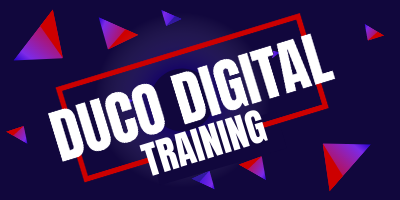Digital Product Management (DPM) is quickly becoming one of the most exciting career paths in today’s fast-changing business world. As companies across industries embrace digital transformation, the need for professionals who can take digital products from development to market success has grown dramatically. The good news? You don’t have to start as a product manager to become one — with the right skills, mindset, and certification, you can make the switch.
Industry studies show that the global digital product management software market is expected to grow at over 10% CAGR from 2023 to 2028, driven by digital transformation and the growth of SaaS platforms. Tech, healthcare, finance, e-commerce, and media companies are all actively hiring product managers to oversee their digital products. LinkedIn frequently ranks Product Manager among the top emerging jobs, with strong salaries and excellent career growth potential.
In short, businesses need product managers to cover the gap between customer needs, technology, and business goals — putting the function at the centre of competitiveness and innovation. Digital Product Management ensures products are built in the right way, connecting features to user needs, tying development to company goals and ROI, enabling faster decisions in an unpredictable market, and reducing wasted resources by prioritising valuable projects. The main value is turning ideas into successful, market-ready digital products, driving growth.

What kind of skills will you need to transition into Digital Product Management? A Digital Product Manager wears many hats. They guide development and design teams, ensuring alignment and removing obstacles. They stay close to the customer, analysing feedback, usage patterns, and market trends to keep products relevant and valuable.
They also shape product direction, maintaining the roadmap, creating user stories, and prioritising features. Collaboration is key: they work with marketing on launches, sales and support on customer needs, and leadership on long-term strategy. They track performance metrics and adjust plans to maximise impact.
Every decision a Digital Product Manager makes — from strategy to execution — is guided by one goal: delight customers while driving business growth.
A successful DPM needs both hard and soft skills:
- Strategic & analytical thinking – for roadmap planning and market research.
- Leadership & communication – to align stakeholders across technology, design, and business teams.
- Technical awareness – not coding, but understanding APIs, software development, and agile workflows.
- User empathy & design thinking – ensuring the product solves real user problems.
- Business acumen – linking product features to profitability and growth.

Many of these skills are transferable from roles like project management, marketing, business analysis, or UX design. The timeline depends on your starting point. Career switchers with relevant experience, such as project managers or business analysts, may take 6–12 months with structured learning and certification. Early career professionals may need 1–2 years, usually starting in associate or junior PM roles, before advancing. The fastest route combines hands-on project experience with a recognised certification.
Several roles share skills and responsibilities with Digital Product Management, making them natural entry points:
- Project Managers – skilled in delivery and stakeholder management.
- Business Analysts – experienced in requirements gathering and process analysis.
- UX/UI Designers – customer-focused, often involved in product design decisions.
- Marketing Managers – understand customer needs and market positioning.
- Software Engineers/Tech Leads – provide technical insight and feasibility knowledge.
Professionals from these fields often transition into product management by building on their strategic and business expertise.
Certifications from well-known companies or organisations help your resume stand out and provide clear proof of your knowledge in the industry. Do you need a certification for a Digital management role? A Digital Product Management certificate offers a structured framework for product strategy, lifecycle, and delivery, helping employers recognize your level of expertise and giving you confidence even without direct prior PM experience.
While certification isn’t strictly required, it accelerates the transition by providing a structured framework for product strategy, lifecycle management, and delivery. It also adds credibility with employers and fills knowledge gaps for those without direct PM experience.
There are many well-established certifications for aspiring product managers that cover various aspects of the job:
- Pragmatic Institute Certifications (PMC)
- Certified Scrum Product Owner (CSPO)
- AIPMM Certifications (e.g., Certified Product Manager – CPM)
- General Assembly Product Management Course
- BCS Digital Product Management Certification
The BCS Digital Product Management Certification is particularly in demand in Europe and is gaining recognition worldwide. Unlike broader certifications, BCS focuses on digital-first products, agile practices, and customer-led innovation — making it an excellent choice for professionals who want to stay aligned with evolving digital transformation trends.
At Duco Digital Training, we provide complete preparation for the BCS exam. Our course fully aligns with BCS requirements, and as an accredited BCS training organisation, we ensure learners receive high-quality, tailored instruction. Best of all, the BCS exam is included in the course price, giving you both the training and the certification in one package.
If you’re ready to transition into Digital Product Management and earn a globally recognised certification, there’s no better time to start.
Start your course today or get
more information here.




